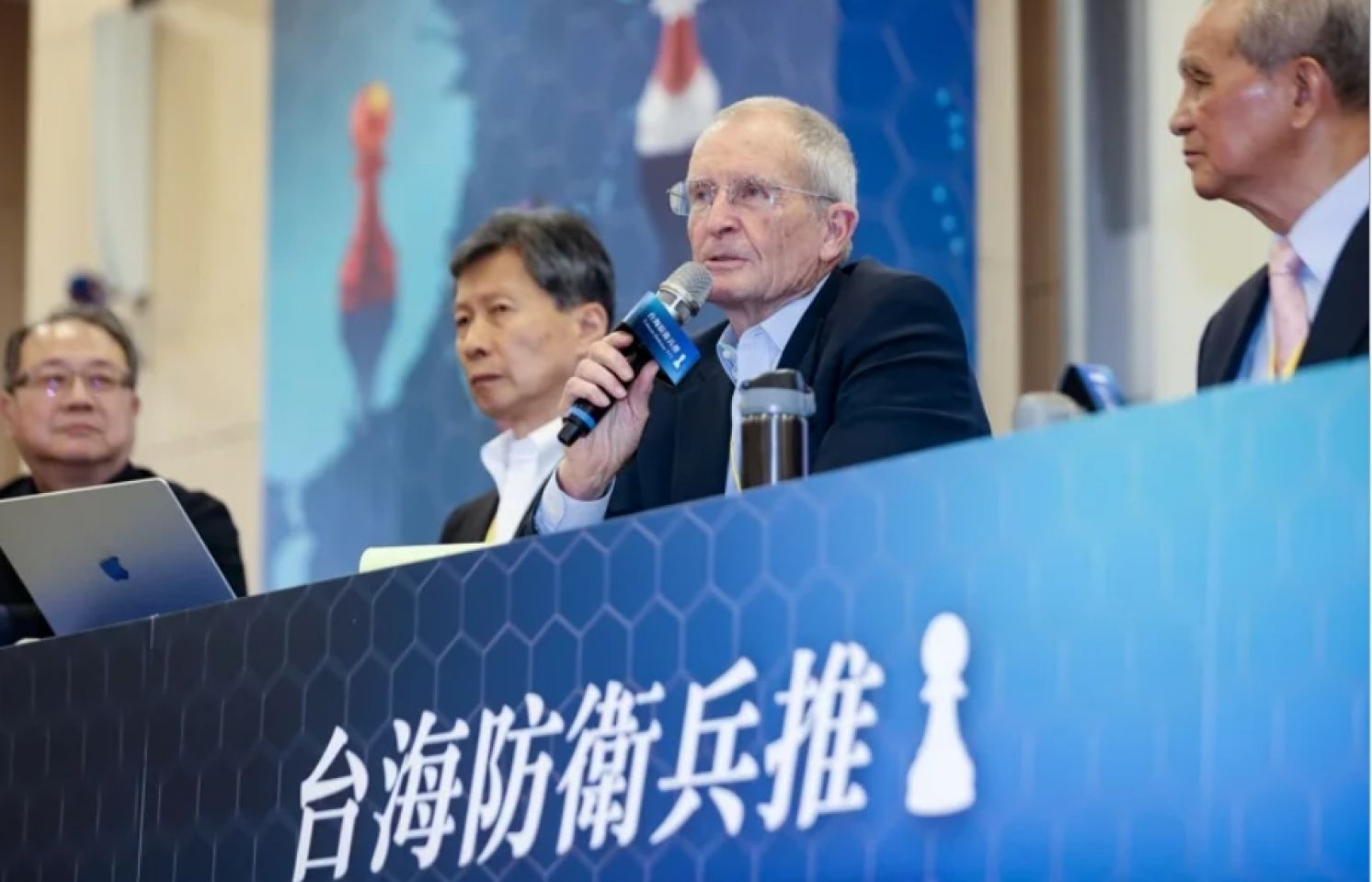
Taiwan Strait Simulation: Two Key Factors Will Determine U.S. Intervention
By Cheng Chia-wen, United Daily News, June 12, 2025
The Center for Peace and Security at the Taipei School of Economics and Political Science Foundation held a 2025 Taiwan Strait defense wargame, which concluded yesterday. Facing a simulated mainland Chinese military invasion, former U.S. Pacific Commander Admiral Dennis Blair emphasized that American intervention in a Taiwan Strait war hinges on two key factors: the cause of the conflict and Taiwan’s own will to defend itself. A participant representing Japan noted that while the Self-Defense Forces are unlikely to take the initiative, they could play a supporting role based on the U.S.-Japan alliance.
Key figures in the simulation included Foundation Chairman Huang Huang-hsiung, Center Executive Director Admiral (retired) Lee Hsi-ming, and Wargame Association Chairman Huang Chieh-cheng. The simulation involved five teams: Command, China, Taiwan, the U.S., and Japan. Lead controllers were retired generals, including former Chief of the General Staff Lee Hsi-ming, former Deputy Defense Minister Hsu Yen-pu, former Army Commander Hu Chen-pu, former Chairman of the U.S. Joint Chiefs of Staff Michael Mullen, and former Japanese Chief of Staff General Shigeru Iwasaki. A total of nine generals, eight lieutenant generals, and several civilian experts participated.
In the simulation, the Chinese team initiated a surprise attack by seizing Taiwan’s poorly defended outlying islands to use as stepping stones for the next phase of invasion. This was followed by a multi-pronged assault involving helicopters, paratroopers, and amphibious forces to capture Penghu and the Hengchun Peninsula before advancing on Taiwan’s eastern counties of Hualien and Taitung.
The U.S. team actively supported Taiwan, deploying forces to secure sea lanes and ensure supply routes remained open. They also frequently inquired about the Taiwanese team’s responses to People’s Liberation Army (PLA) moves. The Japanese team reiterated that the Self-Defense Forces could not initiate action but might participate in a supporting role through U.S.-Japan alliance operations.
As the simulation escalated into full-scale war, both the United States and Japan teams indicated they would be forced to abandon the “One China” policy and recognize Taiwan.
Speaking at the post-exercise press conference, Admiral Blair clarified that while the Taiwan Relations Act mandates support for Taiwan’s self-defense capability, it is not a mutual defense treaty and does not require American military intervention. Whether the U.S. president or Congress chooses to intervene depends on the nature of the conflict. All U.S. presidents have declared opposition to Taiwan's independence. If Taiwan were to provoke mainland China and trigger a conflict, the likelihood of American intervention would decrease.
Blair added that another decisive factor is whether Taiwan has the will and ability to defend itself. Over the past two decades, Taiwan’s self-defense capabilities and resolve have strengthened, making American support more likely under current circumstances.
Lee Hsi-ming remarked that speculating about whether a future U.S. president would deploy troops is meaningless. “Politics determines whether to fight; the military determines how to fight,” he said. Although the U.S. team in the wargame actively supported Taiwan, they emphasized that Taiwan must be willing to defend itself. Expecting American intervention without Taiwan’s effort is an unreasonable assumption.
Former Japan Maritime Self-Defense Force (JMSDF) Chief of Staff Tomohisa Takei observed that the Taiwan team struggled initially due to time pressure and scenario complexity, but their strategic planning was highly realistic. He noted that East Asia’s security landscape has undergone drastic changes over the past decade, and Japan is trying to catch up by implementing a new National Security Strategy and preparing jointly with the United States for rising regional tensions.
From: https://udn.com/news/story/10930/8801169
〈Back to Taiwan Weekly Newsletter〉